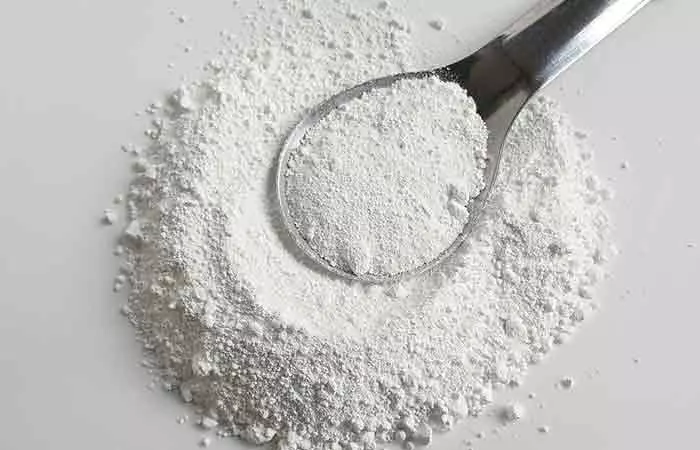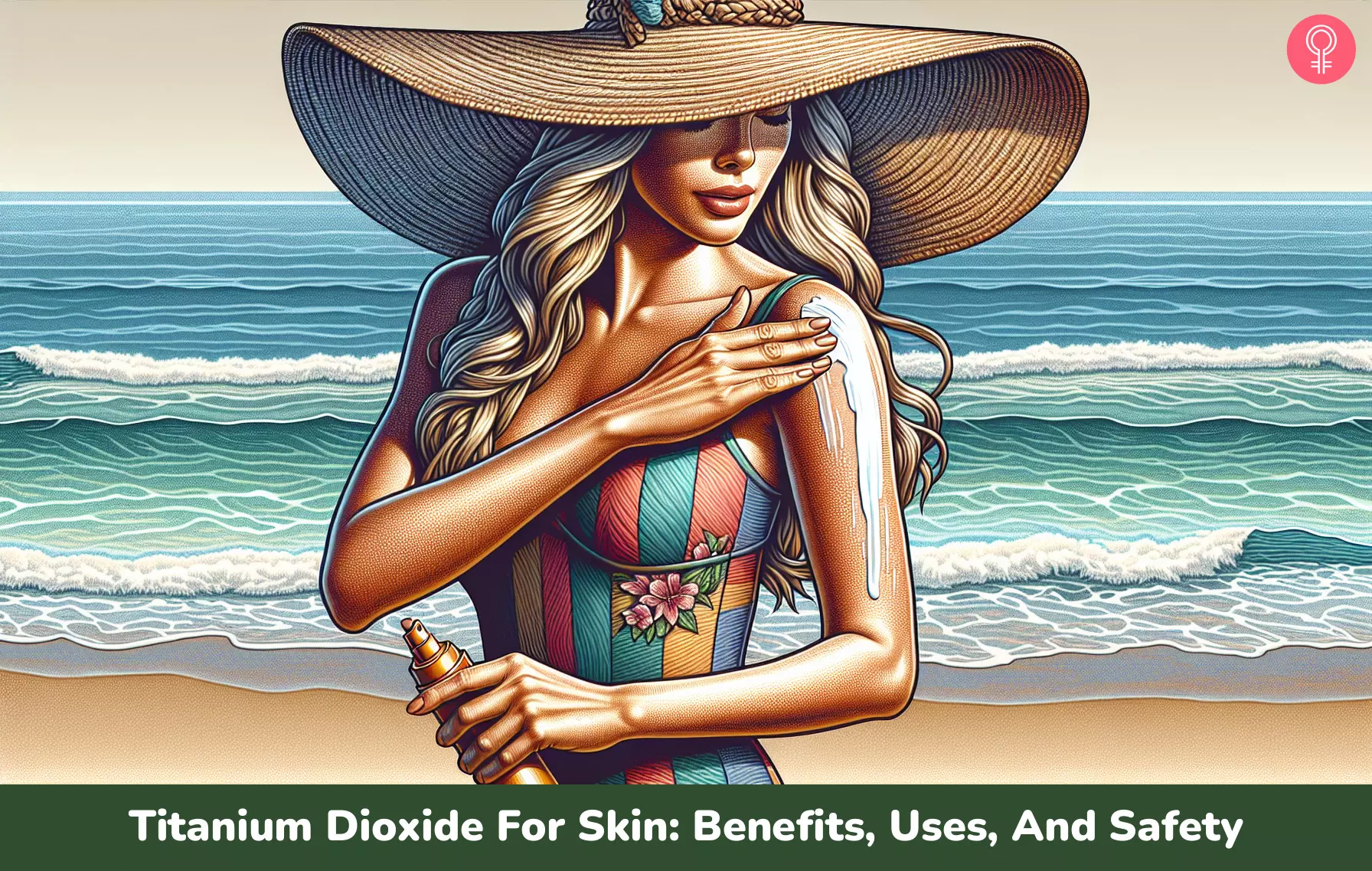Sunscreens with titanium dioxide are good for daily use as they provide efficient UV protection during prolonged sun exposure. While it has been used in the skin care and beauty industry for years now, there have been some concerns about its safety. Read this article to find out all about the use of titanium dioxide for the skin.
What Is Titanium Dioxide?
Titanium dioxide is an odorless, white inert mineral that is naturally found on the earth’s surface(1). It is a popular natural ingredient in many mineral makeup products. Its bright color, high refractive index, ability to filter UV rays, and opaqueness make it a great pigment extensively used in sunscreens and other skin and personal care products like powders, blushes, soaps, lotions, and toothpastes. It is also used in paints, prosthetics, plastics, ceramics, papers, and food additives.
Is Titanium Dioxide Safe For Skin? Are There Any Side Effects?
Most commercial skin care products contain micronized titanium dioxide coated with alumina, dimethicone, silica, and trimethoxy capryl silane. Hence, it does not penetrate deep into the skin. Several studies have proven that titanium dioxide, even as nanoparticles, does not penetrate the skin or stratum corneum (SC) (2). A study published in the International Journal Of Environmental Research And Public Health demonstrated that titanium dioxide nanoparticles (TiO2NPs) could not permeate intact and damaged skin (3). It has been suggested that it can exhibit a potentially toxic effect on the skin only after long-term exposure. It is thought to have carcinogenic properties when taken orally or inhaled. However, none of the studies found any evidence of carcinogenicityi The ability or tendency of a substance to increase the incidence of tumors or carcinogenesis, i.e., the formation of cancer. of titanium dioxide (4). Also, there is no evidence of adverse effects of titanium dioxide after topical application. However, some people can be allergic to it, and upon topical application, titanium dioxide may:
Irritate your eyes and skin May cause coughing, phlegm, and shortness of breath (if inhaled).
It is on the Right To Know Hazardous Substance List cited by (5)
Occupational Safety and Health Administration (OSHA) American Conference of Governmental Industrial Hygienists (ACGIH) National Institute for Occupational Safety & Health ( NIOSH)
Since studies are inconclusive, and there is no data on the safe level of exposure, it is important to look for the ‘Made Safe’ seal on the skin care products before buying one. However, if you are using products with titanium dioxide without any issues, do not panic. It is an effective UV filter and can protect your skin from sun damage. Here are the reasons it is widely used in products.
Uses Of Titanium Dioxide In Skin Care
1. In Sunscreens
Titanium dioxide particles can block harmful ultraviolet light rays and protect your skin from cancer, UV damage, photoagingi Premature aging or skin damage caused by prolonged exposure of the skin to UVA and UVB radiations of the sun or any other radiation. , and oxidative stress. It can scatter both UVA and UVB rays off your skin and is an active ingredient in mineral-based sunscreen products. It is gentle on the skin and does not cause a stinging sensation when applied around the eyes. Another benefit of using titanium dioxide is that it does not leave a white cast on the skin when used in lower concentrations (3).
2. In Makeup Products
Titanium dioxide is used in cosmetic products as a brightening, thickening, and opacifying agent (3). It is commonly found in loose and pressed powders, eyeshadows, and blushes. The brightly pigmented particles of titanium dioxide refract light rays. This property hides blemishes and skin pigmentation issues. It brightens the skin and gives you the desired results.
3. In Products For Sensitive Skin
Titanium dioxide is an inert earth mineral and is gentle on inflamed or redness-prone skin. Hence, it is commonly used in skin care products approved to be safe for sensitive skin. Is titanium dioxide or zinc oxide better? Zinc oxide is better as a sunscreen than titanium dioxide. Like zinc oxide, titanium dioxide can effectively block UV-B and short-wave UV-A rays. However, it is not as effective as zinc dioxide in blocking long UV-A rays. Can titanium dioxide cause pimples? No. Titanium dioxide is non-comedogenici A term used to describe a property of a substance or product that does not clog the pores of the skin and allows it to breathe. . However, individuals with sensitive and acne-prone skin should use it with caution as it may irritate sensitive skin and trigger breakouts. Is titanium dioxide banned in Europe? Titanium dioxide is set to be banned in Europe as a food additive, with effect from August 2022. Is titanium dioxide FDA-approved? Yes, titanium dioxide is FDA-approved as an ingredient in sunscreens.
Illustration: Titanium Dioxide For Skin: Benefits Uses And Safety
Dive into the world of cosmetic safety in this eye-opening video about why titanium dioxide is avoided in skincare and makeup. Uncover the potential concerns by clicking on the video below!










